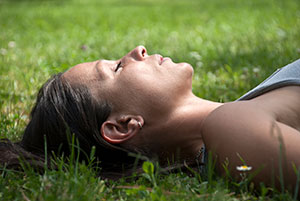News
Relapse
Date: 04/01/22

This means falling back into an old habit of using substances and is not uncommon. Usually there are warning signs of a relapse. Knowing what these signs are is helpful in creating a plan to address them.
Relapse occurring does not mean that treatment has failed or that an individual is weak. A person with a substance use disorder needs to learn and practice many skills to stop a relapse or keep it from happening again. Relapse can be thought of as a chance to learn how to deal with similar situations differently in the future. It is common for people to have urges and cravings to use so the development of skills to deal with and prevent a relapse is very important.
If relapse happens again and again it may be the sign of a more serious problem that may require help from a professional.
What Increases the Chances of Relapse?
Everyone will have situations and feelings that put them at risk. Here are some things that can increase your chances:
- Feelings like anger, anxiety, depression, frustration or boredom.
- Any strong feelings, even happy ones, can be difficult for some people.
- Conflict with others.
- Pressure from friends who use.
- Celebrations, such as birthdays and anniversaries if alcohol is present.
Know What Increases Your Chance
Think it through and plan. Learn what situations are hard for you. Know what places, events and people trigger you. For example, avoid bars or clubs where you used to drink or use drugs.
Make plans. For example, at holiday celebrations, make plans ahead of time for how to say no to a drink. Practice! Have a glass of water in hand so people will not ask you if you need a drink. If it feels ok, let some supportive people know you have a goal to make it through the event without using substances. If relapse happens, learn from it. Learn better ways to deal with the same types of things in the future. If you have a co-occurring disorder, such as depression, know when your symptoms are getting worse and get help so you are not tempted to use substances.
Get rid of items that might trigger use (for example remove all alcohol, things like favorite drinking glasses, needles or medications you no longer use.) Practice skills to reduce stress (for example, positive thinking, pet ownership, exercise, relaxation, etc.) Do things you used to enjoy that did not include drugs/alcohol. Learn new hobbies, find new interests and friends that are separate from people and places that may trigger use.
Helpful Thoughts
- Know that even though it may bring short-term happiness, substance use almost always leads to a negative end.
- Know that if you relapse, you do not need to go back to heavy drug use. You can start your recovery habits again right away.
- Know that you do have control over your use.
- Know that with each situation you handle well, you will gain new skills and confidence to prevent relapse from continuing.
Resources
Center for Addiction and Mental Health
http://camh.net
This information is not intended as a substitute for professional medical care. Please always follow your healthcare provider's instructions. Programs and services are subject to change. Managed Health Network, LLC (MHN) is a subsidiary of Health Net, LLC. The MHN companies include Managed Health Network and MHN Services, LLC. Health Net and Managed Health Network are registered service marks of Health Net, LLC or its affiliates. All rights reserved
.jpg)
